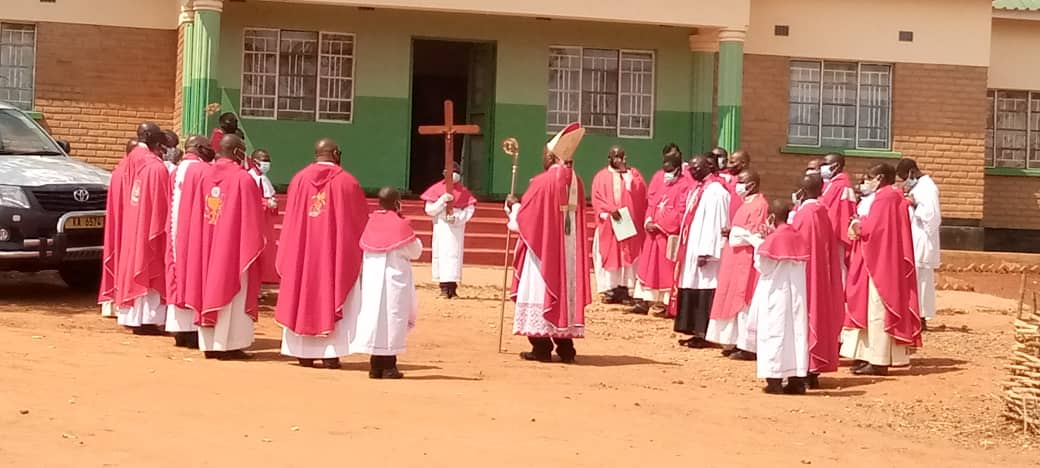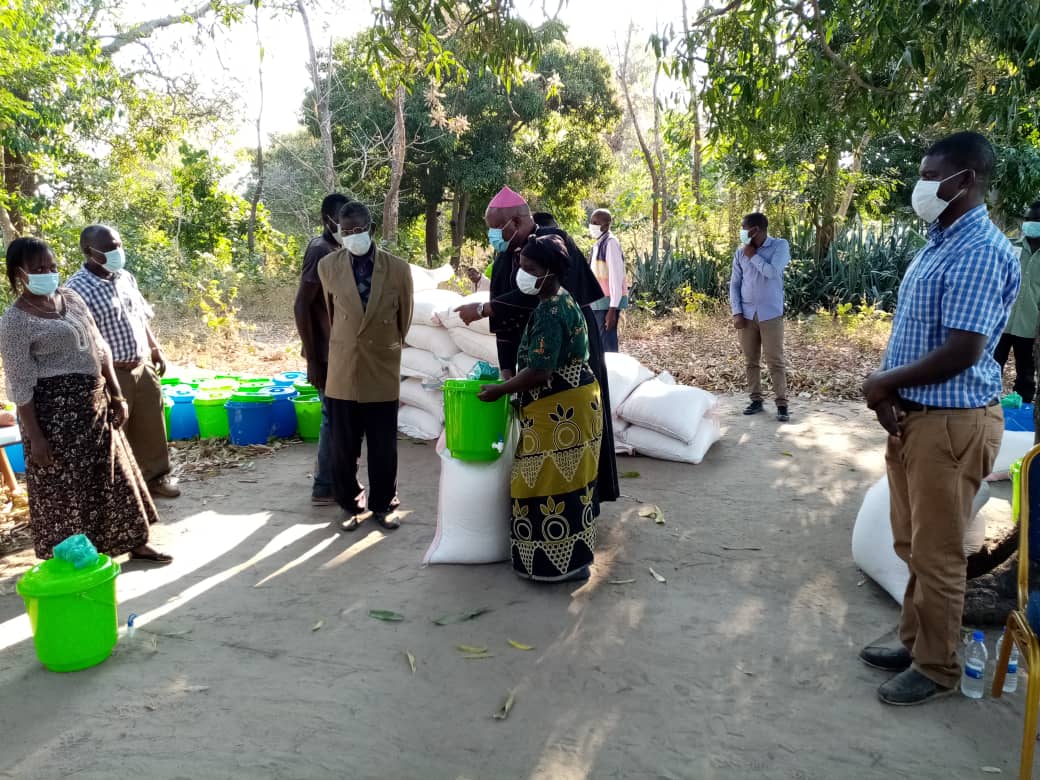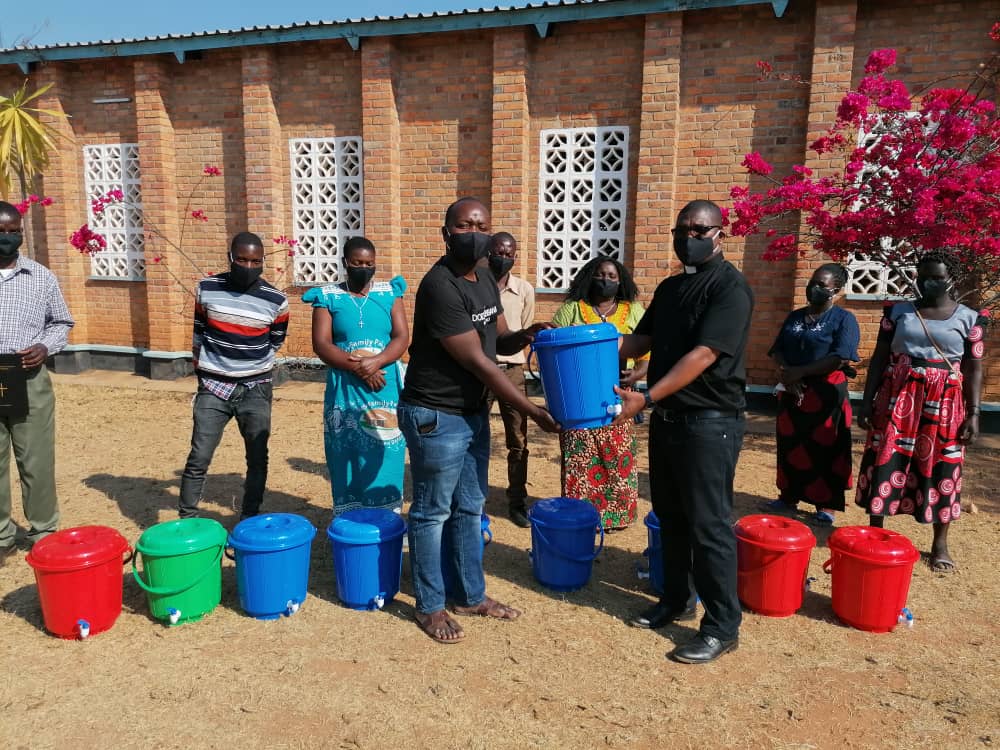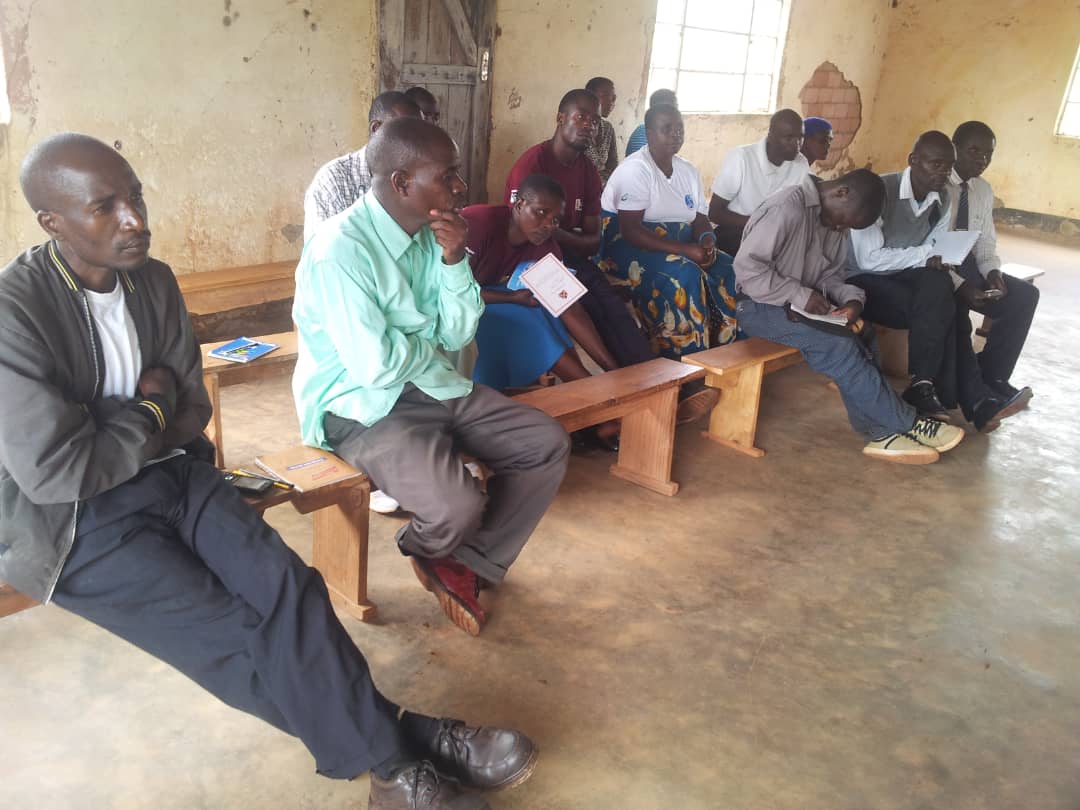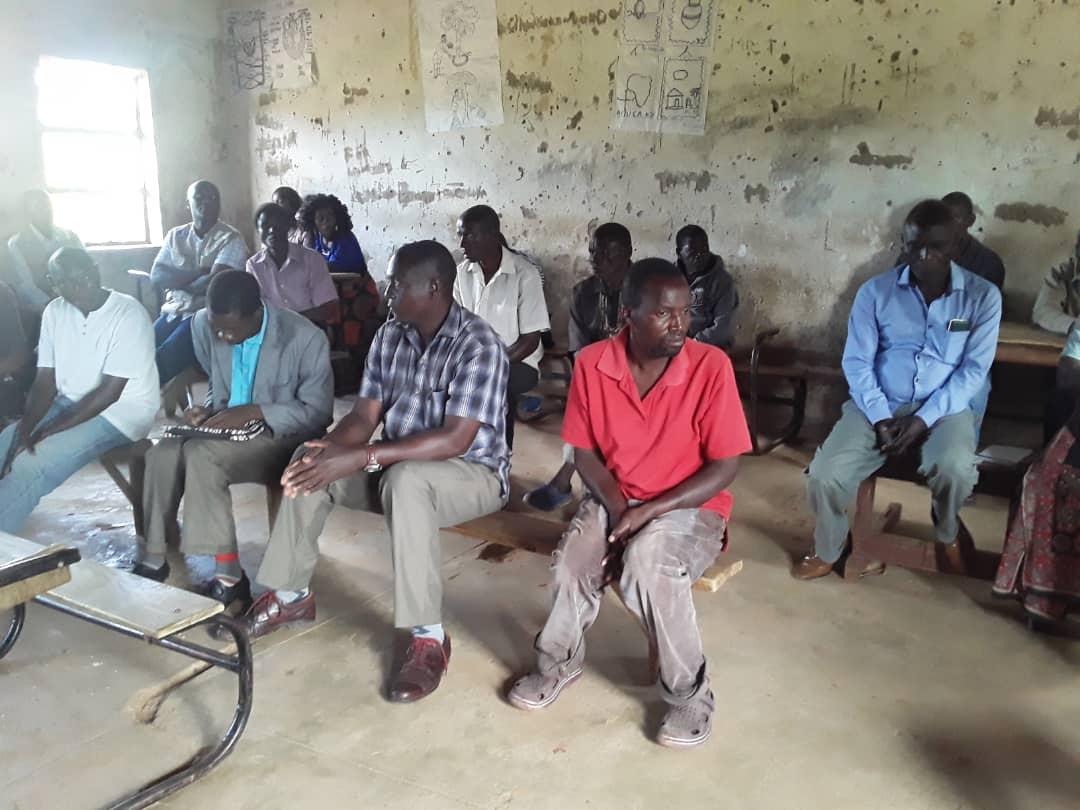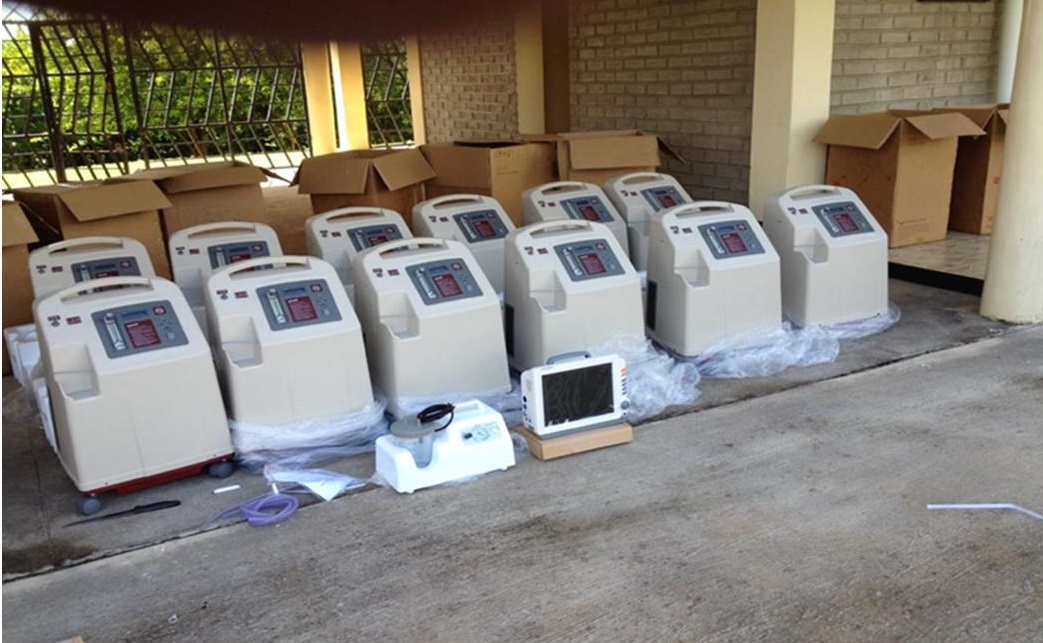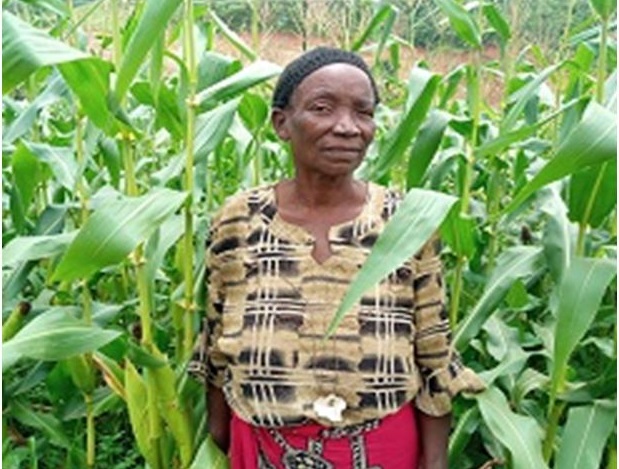Understanding Risks and Protective factors in child protection; tips for Child Care Institutions (CCIs)
Vitumbiko Ngwira*
Child protection unavoidably involves uncertainty, ambiguity and fallibility. The world rightly expects high standards from child protection workers in Child Care Institutions in ensuring that children are at all times in a safe environment, but achieving this is not an easy task. Well, before going further it is good to note that there is no single known cause of child abuse and neglect; it occurs across all socioeconomic, religious, cultural, racial, and ethnic groups. Child Care Institutions must ensure that they conduct periodic child protection risk assessment to ensure that children are at all times safeguarded against harm. This short reflection can also be beneficial to ECDs, primary and secondary schools, churches or any other place that looks at the welfare of children. It’s always important to keep in mind that the aim is not just to minimize the danger to children but rather to maximize their welfare. Let us look at some key areas of risk assessment for child protection.
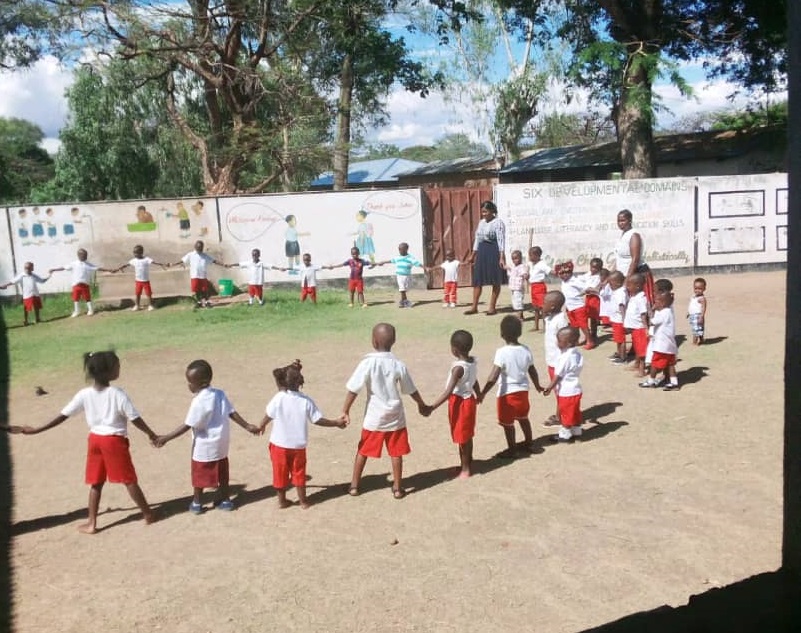
Always have enough and qualified staff to ensure that children are given good attention at all times. Lack of enough and qualified staff is a risk factor for the protection of children. The responsibility of protecting children from harm requires an institution to have competent people in child protection. It is not enough just to have many staff in a CCI, but it is imperative to have staff with knowledge about child protection. This gives them confidence to provide protection to children at all times. In order to enhance knowledge in child protection, institutions need to organize continuous trainings to their staff and children on child protection. Understaffing in a CCI is huge risk factor for child protection. This becomes even worse when the few existing staff do not have the right qualification to adequately protect children from harm.
Special needs children require extra attention to ensure that they are safe at all times. Special needs increase caregiver’s work. Examples of special needs in CCIs may include children with mental health issues, and chronic physical illnesses. As an institution it is always important to assess your capacity for taking care of children with special needs. Lack of adequate capacity in handling special needs cases might lead to more harm to the children.
Having children under the age of 4 is another risk factor that CCIs need to pay particular attention to. The admission conditions to CCIs of these children are solely based on the fact that there is no close relative who can offer good care for their upbringing and in this case CCIs become a safer environment for their upbringing. Normally, Under 4 children require extra care which will be difficult if your institution does have enough staff to take care of them.
Lack of clear child protection policy is also another huge risk factor for the protection of children in CCIs. A child protection policy gives guidance to caretakers on how they can best create a safe environment for children. CCIs must ensure that they have a working Child Protection Policy in place. The policy should be oriented to all staff members and all children.
Having looked at some of the risk factors it is important to also look at some protective factors for children in CCIs.
CCIs need protective factors to buffer children from abuse and neglect. These include having caring caretakers who put the welfare of children at the centre of everything. Caring caretakers can help children to be resilient and have ability to cope with any situation that exposes them to risks. Caring caretakers can help children to have self-esteem, cultivate a sense of independence, and positive attitude.
CCIs need to offer a good environment for the safety of children. For example they must ensure that any electrical appliances are far from reach of children. They must also ensure that children have enough space in their rooms to avoid congestion.
Preparation for any danger is a very important protective factor. CCIs should invest in preventive measures for any potential danger. For example, fire drilling sessions should be conducted to all workers and there should also be provision for fire assembly points within the CCIs.
In conclusion, understanding the risk and protective factors for child abuse and neglect is important for developing effective prevention interventions in CCIs.
The Author is Director of Lusubilo Community Care
New Appointments of Diocesan and Religious Priests
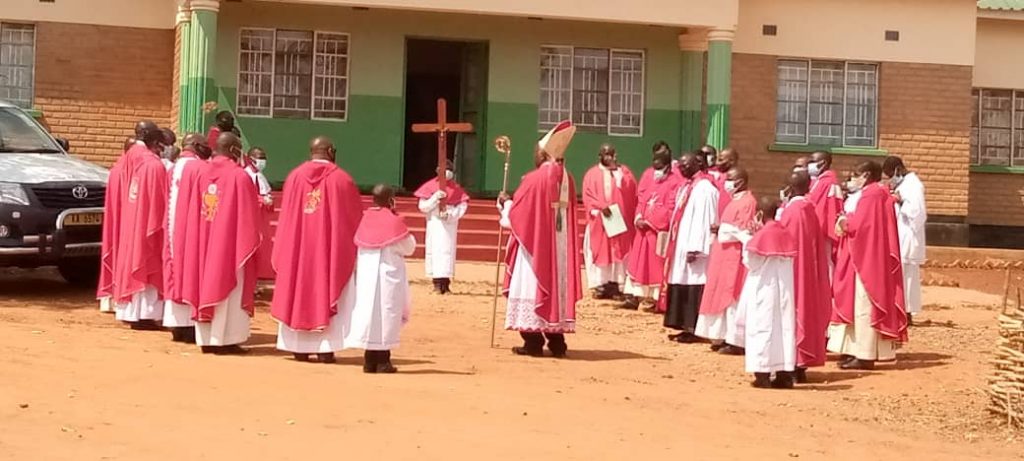
Bishop Martin Mtumbuka of the Diocese of Karonga has made the following appointments of Diocesan and Religious priests:
- Parishes
Reverend Father Simon Mwenefumbo (newly ordained) is Curate at St Matthias Mulumba (Misuku) Parish
Reverend Father Regis Kamela is Acting Parish Priest of St Michael’s Parish and Dean of Chitipa Deanery
Reverend Father Edward Kamanga is Curate at St Mary’s Parish and Social Communication Secretary
Reverend Father Charles P. Chinula is Curate at St Steven’s Parish
Reverend Father Thomas Gondwe is Curate at St John Paul II Parish
Reverend Father Nazario is Parish Priest at St Apollonia Parish. He arrives from Philippines on 16 October, 2020.
Reverend Father Peter Koh is Curate at St Apollonia Parish. He arrives from Singapore on 16 October, 2020.
Reverend Father Aubrey is Parish Priest of Immaculate Heart of Mary (Chisankhwa) Parish. He arrives from Zambia on 16 October, 2020.
2. Directorates, Chaplaincies and Boards
Reverend Father Alick Sikwese is Director of Finance, Investments and Administration and will be operating from the Curia Offices
Reverend Father Edward Kamanga is Social Communication Secretary
Reverend Father Joseph Mkinga is Chaplain of Chaminade Mission
Reverend Father Edward Kamanga is Chaplain of St Mary’s Secondary School Mission
Reverend Father Thomas Gondwe is Vocations Director and Family Apostolate Coordinator
Reverend Father Kondwani Mwenegamba is Acting Chaplain of Kaseye Mission
Reverend Father Aubrey is Board Member for Tuntufye FM Radio Station
Reverend Father Doctor Steven Bulambo is Chaplain of St Anne’s CDSS and St Anne’s Hospital
Reverend Father Peter Koh is Board Member for Lusubilo Community Care and Chaplain of Ngala CDSS
Priests on transfer are expected to arrive at their new places by 1 October, 2020.
Kolping Family Transforming Lives
By Maureen Soko
The Diocese of Karonga has appealed to Kolping Family members to collaborate as they are all working towards spiritual and economic elevation.
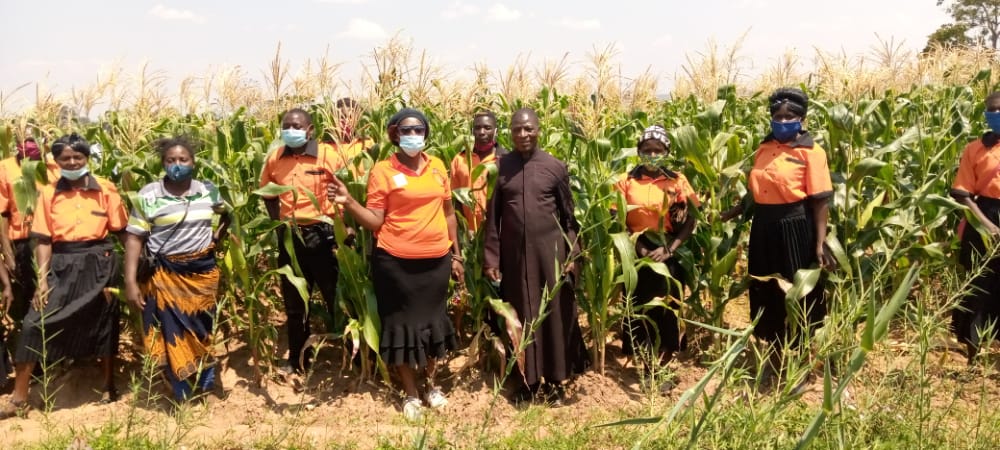
Father Lorent Dziko, The Chaplain of Lay Movements and a Parish Priest for St John Paul II in the Diocese made the remarks after a three days supervision exercise in four parishes.
In his speech, he urged members to work together and learn from each other so that they can grow together spiritually and participate in agricultural activities to ensure food security in every household.
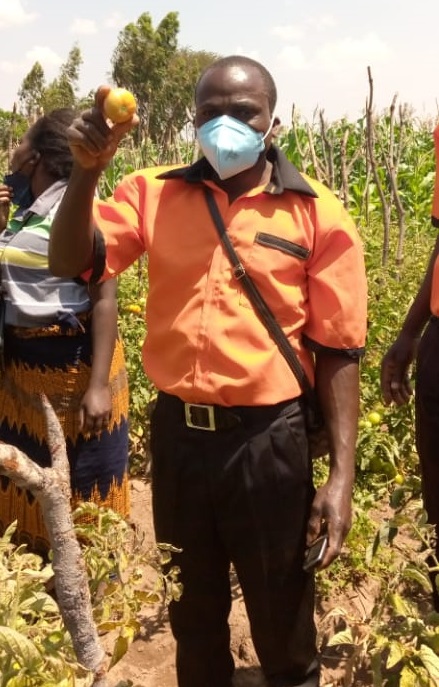
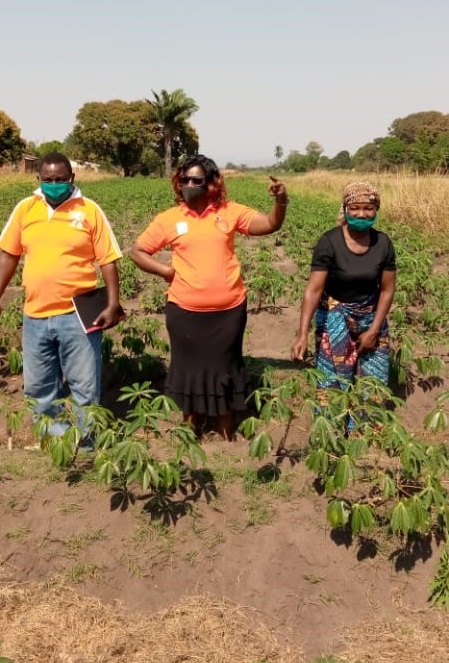
Father Dziko also appreciated the way families are able to work together to change their lives through the programme. He, however, asked the members to exercise patience as there has been a delay in distribution of some livestock due to COVID-19 pandemic.
Speaking with one of the members of Ibanda Kolping Family under St. John Paul II in Chitipa, Robert Kabaghe said Kolping program has helped them in so many ways like, the use of organic manure which is cheaper that chemical fertilizer and they are able to make money from the products made from farm produce and saving of money in their groups.
“Before joining Kolping we couldn’t yield more because fertilizer is very expensive for some of us to afford. But now through trainings that we undergo in Kolping we are able to make manure which we use in our gardens,” Kabaghe said.
Kabaghe also further expressed how much success he has gained in the Kolping Family.
“Through farming I was able to build my own house and now am looking forward to build another one for rent,” he added.
Concurring with Kabaghe, Lucia Gondwe, of Chimwemwe Kolping Family at Thabiro under St Apollonia Parish in Karonga, said this program has improved her life and she is able to find all necessities on her own.
“Now I am food secure. I am able to support and provide for my family. I am also able to honour my contributions to the Church like tithes, annual harvest and other Church offerings without struggles as it was before,” she said.
However, all Kolping Families in all the four parishes visited cited water as the main challenge to their irrigation farming drive. During the visits also included other taskforce members like Father Mathews Simwera and Prosperina Shaba who together toured 7 Kolping Families in Chitipa and Karonga.
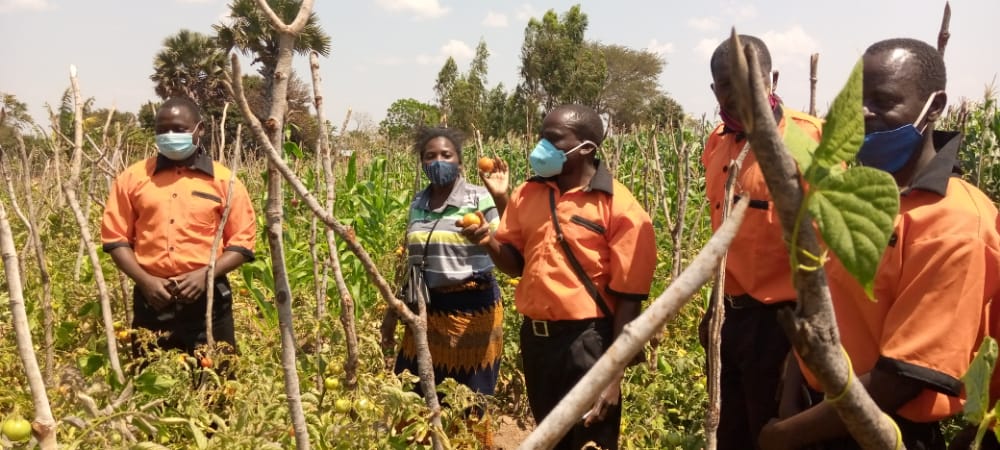
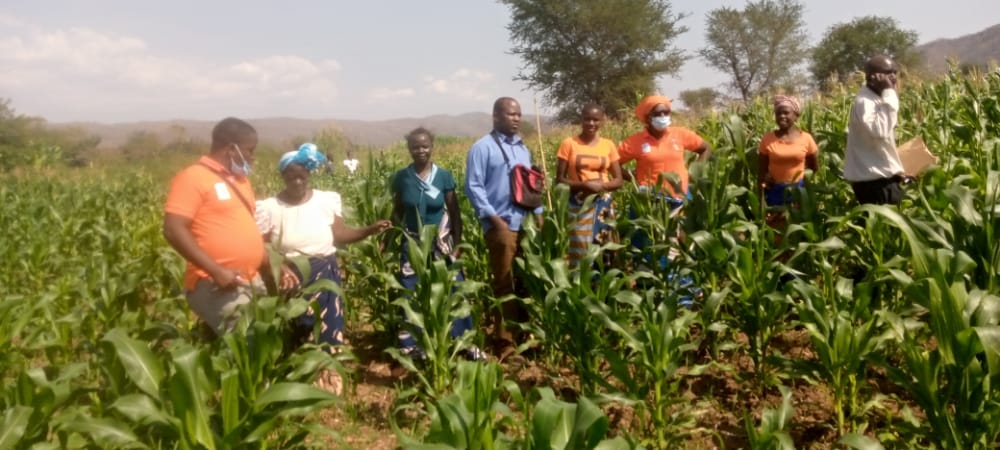
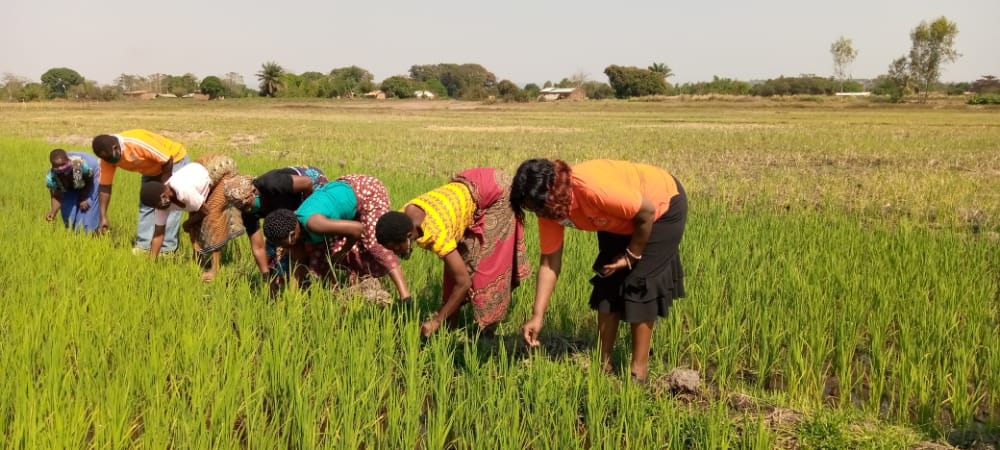
Bishop Mtumbuka Launches COVID-19 Relief Distribution
By Richard Mwafulirwa
On Wednesday, Bishop Martin Anwel Mtumbuka of the Diocese of Karonga responded to the hunger situation of the people around the Bishop’s House at Mwenelondo by distributing relief food assistance and hand washing facilities for COVID-19 prevention.
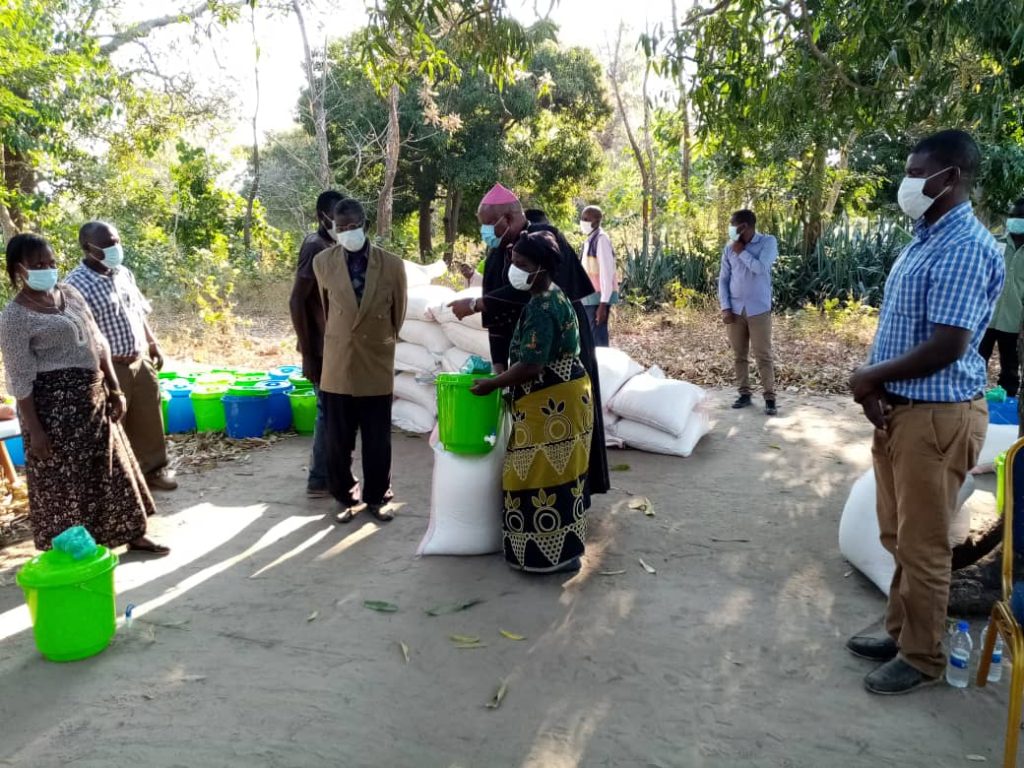
Speaking during the launch of relief distribution, which took place at Mwenelondo in the area of GVH Melele in Karonga District, where about 35 households received food items and hand washing buckets, the Bishop said he decided to share with them the items to alleviate the challenges they community members are facing.
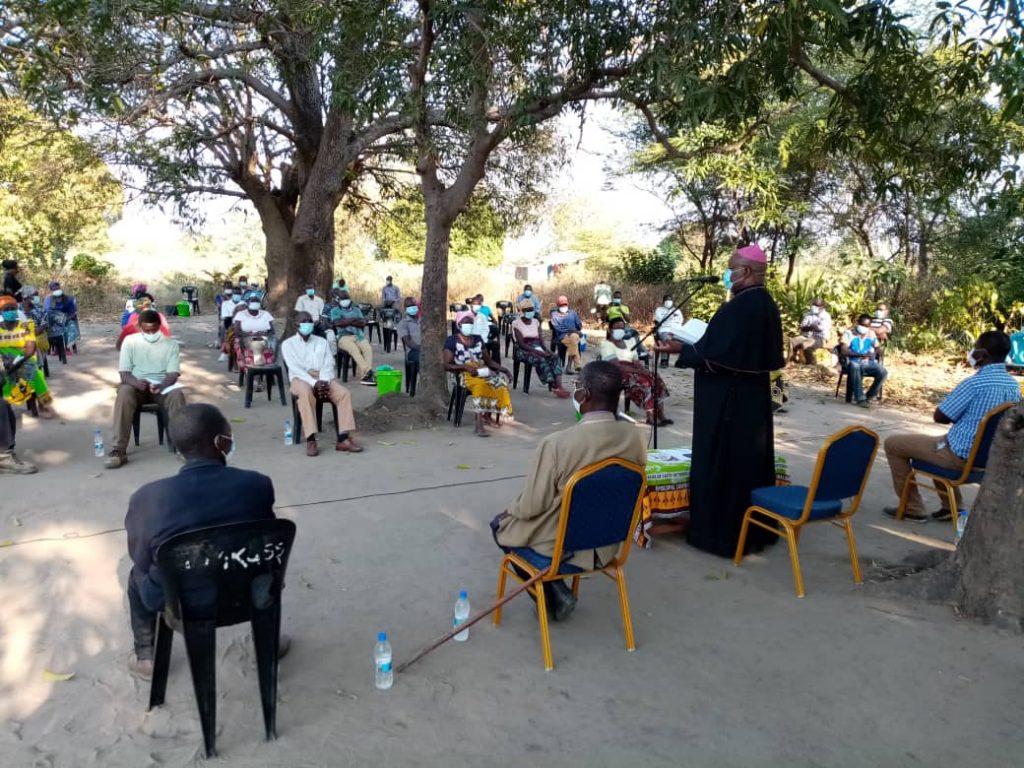
“As I stay in the same village with you, I see that most of you are poor. I wish you well in these hard times of COVID-19 pandemic,” said the Bishop.
The Bishop further condemned the act of burning houses and killing people just because of being accused witchcrafts. He said he will continue to condemn such acts as it is done to people who are poor and less privileged.
“What has happened to GVH Mwandwanga is very discouraging. But we will continue to condemn such acts because the one to suffer is the less privileged and it is counterproductive,” said Bishop Mtumbuka.
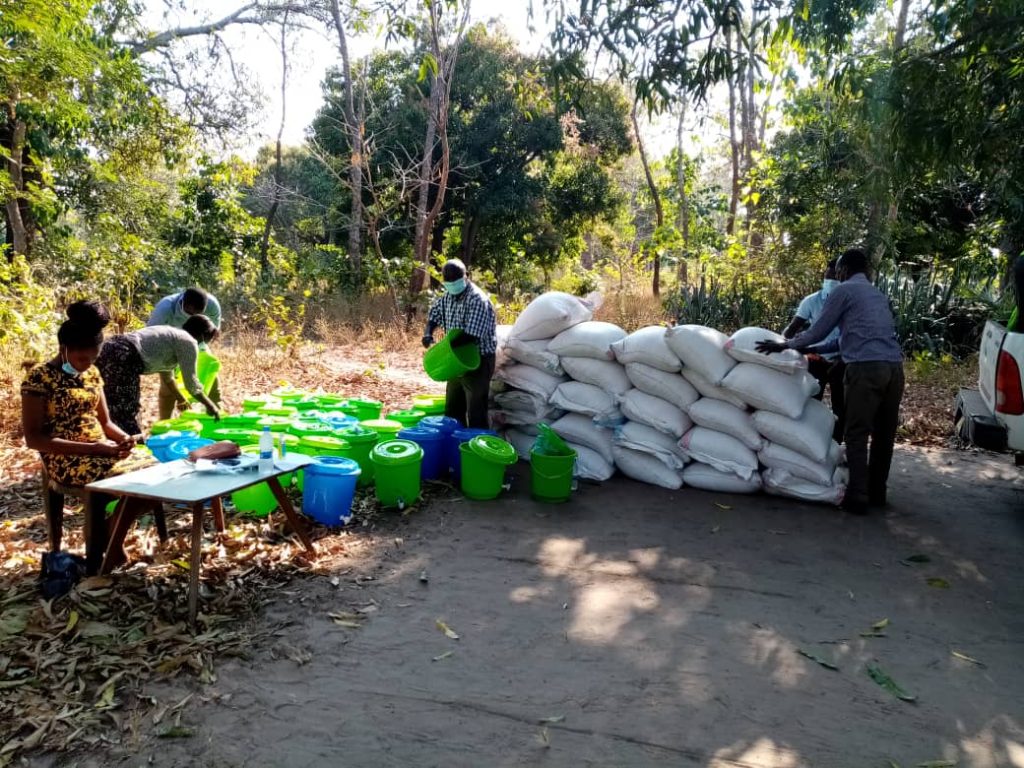
Acknowledging the donation, GVH Melele expressed his happiness as the donation will help his people. He has pledged to see to it that facilities for COVID-19 prevention are used accordingly.
“I am very happy and thankfully to the Diocese and the Bishop of Karonga Diocese as the donation will help my people as they struggle to source for themselves,” GVH Melele.
During the ceremony, the Bishop launched the relief distribution exercise. The donated items are part of COVID-19 response initiative which is being facilitated by the Development Desk of the Diocese of Karonga. The relief items have been donated by the Episcopal Conference of Malawi.
St Michael’s Parish Receives PPEs to Support COVID-19 Prevention
By Madalitso Chiona*
On Sunday, St Michael’s Parish, in Chitipa, under the Diocese of Karonga received assorted personal protective equipment (PPEs) from well-wishers from Germany to support efforts to prevent COVID-19 pandemic in places of worship.
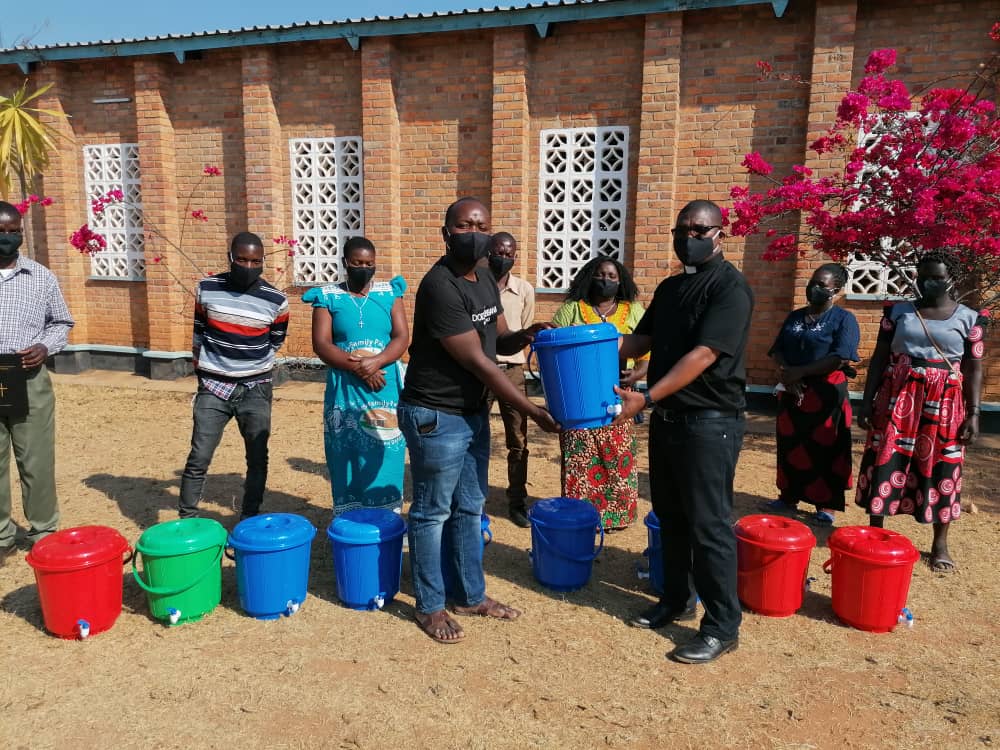
The donation which included 10 hand washing buckets, tablets of soap and 50 face masks has come from Elisabeth Maasjost and friends through Reverend Father Steven Bulambo of St. Anne’s Parish.
In his remarks, Reverend Father Kondwani Mwenegamba of St Michael’s Parish thanked Elisabeth Maasjost and her friends for the support rendered to the parish saying it will help a lot in the fight against the pandemic as many Christians are unable to secure these PPEs on their own.
“If you walk around the Parish you can see some people are not putting on face masks and in most gathering places, people are not washing hands as it is supposed to be, not because they do not care about contracting the virus but due to lack of PPEs.” Said Father Mwenegamba.
Speaking after handing over the items to the Catechetical Methodology Advisor, Paul Mwandira and COVID-19 Prevention Committee for the Parish, Father Mwenegamba pleaded for proper use and distribution of the same and that the main beneficiaries of the items should be prayer houses that are under the Parish.
Father Mwenegamba further appealed to all people from all walks to borrow a leaf from Maasjost in trying to combat the pandemic.
Speaking on behalf of the COVID-19 Committee and St Michael’s Parish members, Catechetical Methodology Advisor Paul Mwandira also commended Maasjost for support rendered to the Parish.
“Since St Michael’s is one of the major Parishes in the Diocese, 10 buckets, soaps and 50 face masks are not enough for two zones with 20 sub stations hence these buckets and soaps will be distributed first to prayer houses that do not have any,” said Mwandira.
According to Chitipa District COVID-19 Status report released on the 17th of August, the District has so far recorded 52 positive cases of COVID-19 out of which 48 have recovered, three have died and there is only one active case.
*The Author is Parish Communication Agent for St Michael’s Parish
Karonga Diocese Health Desk conducts review and mentorship meetings for TB community volunteers in Karonga and Chitipa District
By Vincent Shaba
The Health Desk conducted review and mentorship of volunteers in Chitipa and Karonga Districts under a community TB care project entitled Invest for impact against TB/HIV. Meetings took place from the 23rd of March this year.
The purpose of these meetings was to monitor progress of activities including community education of TB, sputum sample collection and supporting of patients on TB treatment.
During the meetings, project staff took an opportunity to mentor volunteers. Project staff also monitor data collection tools such as the community presumptive TB register, monthly report form and others to ensure that they are correctly filled. Project staff from the Diocese work in partnership with Ministry of Health (MoH) health workers specifically The District Environmental Health Officer (DEHO) and the District TB Officer (DTO). At community level, TB Focal persons from health facilities and community HSAs support volunteers in their day to day operation.
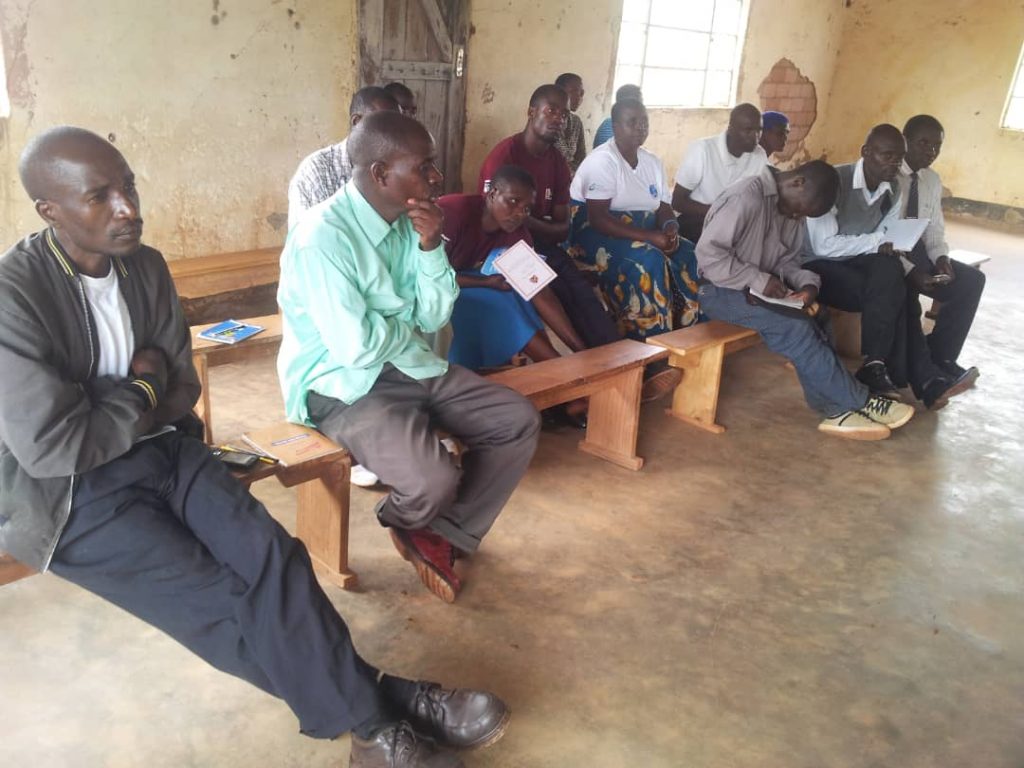
The goal of this project is to reduce illness and deaths from TB through strengthening TB activities at Community level. Specifically, the project intends to increase the number of TB cases diagnosed and to increase number of patients treated for TB confirmed positive.
This project is funded by Global Fund through Actionaid (Malawi) and Episcopal conference of Malawi (ECM). During this first quarter review meetings, 10 sputum collection points in Chitipa and 8 in Karonga were visited. Generally it was noted that there is slow progress of activities since mid-last year. Contributing factors include low motivation of volunteer due to few volunteers participating in review meetings, wearing out of personal protective equipment and enablers. Long distance with poor transport means further impede volunteer movement to health facilities. This has resulted in low yield of presumptive cases as well as cases confirmed positive.
Actionaid the principal recipient (PR) of the project promised to replenish supplies. Karonga Diocese staff is encouraging volunteers to workers tirelessly in spite of these hardships especially educating communities on TB.
PET conducted at Hara Maternity wing
By Lestina Sanga
‘Public resources need to be well accounted for’, Mr Msukwa, the Karonga District Council Finance Committee Chairperson. This was stated in his speech during Public Expenditure Tracking (PET) dissemination for the Construction of Hara maternity wing at Chankholombe School.
the PET dissemination was organised by the Justice and Peace Desk of Karonga Diocese under the Project OSISA Health Governance. under this project, the Desk has managed to empower community members to following up on expenditures as well as projects done using resources from public funding baskets. the desk has volunteers known as the Public Expenditure Tracking (PET) Focal Team, who spearhead the tracking system and empower others. the purpose of the PET process is to ensure that there is transparency and accountability in the management of funds in the Health Sector.
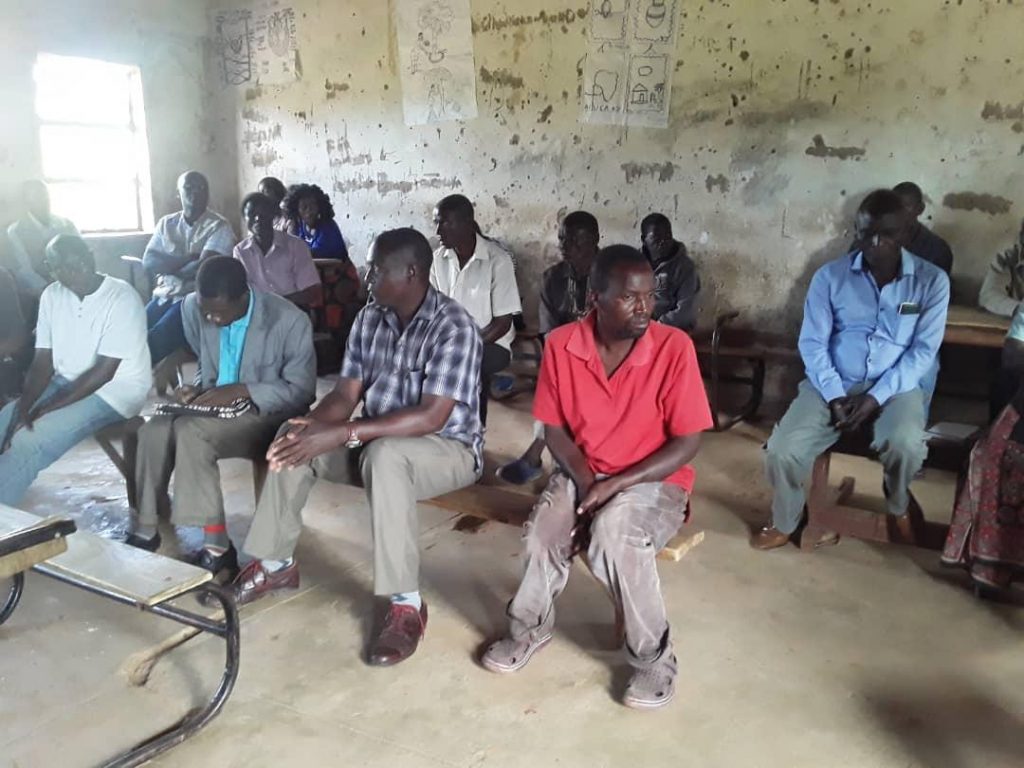
Hara Maternity Wing was constructed using Community Managed Social Economic Fund. By design is the project under the fund is supposed to be managed by the community members, who receive training and technical guidance from the district councils relevant officers. However, Hara Maternity wing was constructed with no monitoring and supervision from the Council, the committees chosen did not have enough training, which affected the management of the contract with the Contractor and procurement of building materials problematic.
From the PET conducted, an amount of about MK 65,000 was misappropriated, including other already procured materials. It was also revealed by the Project Implementation team that MK 500,000 was taken forcefully by the contractor.
On way forward it was recommended that there should be New Project Management team to continue the project when funds are mobilized, the one present was doubled as the Health Center Management Committee and Project Implementation Team. so the project lacked local oversight and monitoring.
Covid-19 Preparedness and Response: Action Taken by Diocese of Karonga to Date
Introduction
Coronavirus disease, pneumonia of unknown cause detected in Wuhan, China, was first reported to the World Health Organisation (WHO) on 31st December, 2019. The outbreak was declared a Public Health Emergency of International Concern on 30 January, 2020.
On 11 February 2020, WHO announced a name for the new coronavirus disease: COVID – 19; and declared it a pandemic on 11 March, 2020. As of 5 May, 2020, the world has registered 3,659,103 positive cases and 252,573 deaths. As of the same date, Malawi had recorded 41 confirmed cases and 3 deaths; with one case recorded in Karonga.
The Diocese of Karonga has taken a number of steps in Covid-19 preparedness and response. This therefore presents the actions taken by the Diocese of Karonga and progress made in the same.
Establishment of Advisory Committee to the Bishop on COVID-19 (ACB)
On 23rd March, 2020, Bishop Martin Anwel Mtumbuka presided over extra-ordinary meeting on coronavirus involving Curia staff members, Lusubilo Community Care staff and Tuntufye Radio representative. As there were variations in the level of preparedness and response, need for coordinated efforts at Diocese level was felt. To this effect, the Bishop established Advisory Committee to the Bishop on Covid-19. The Committee is chaired by the Caritas Secretary, Mwawi Shaba, and it comprises of selected members of Curia staff, representatives of Diocesan health facilities, Lusubilo Community Care and Tuntufye FM Radio.
The aim of the ACB is to strengthen the protection of people within the Diocese of Karonga from COVID-19 and provide treatment and care for those suffering from the disease.
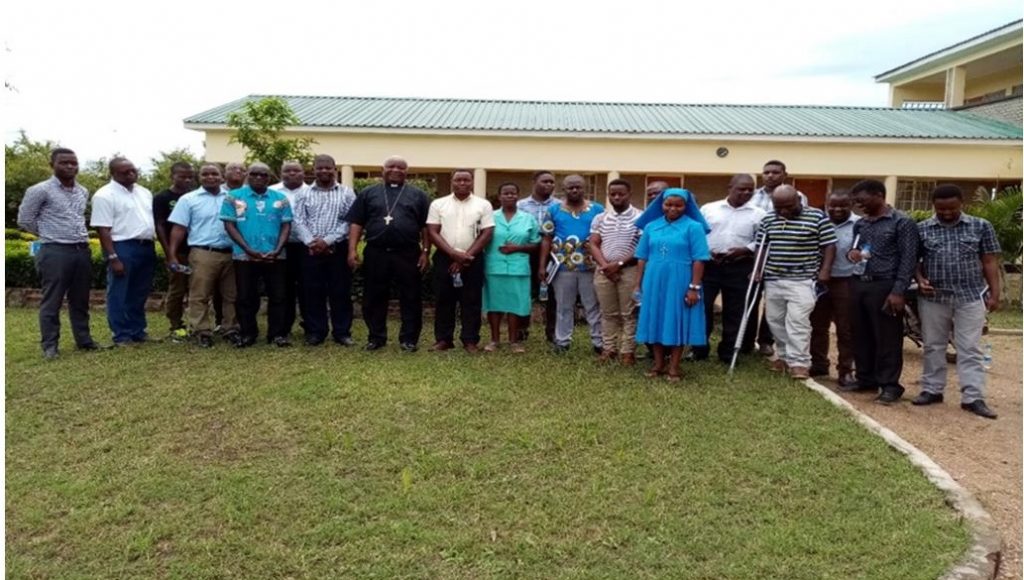
Procured and installed life-saving Oxygen Concentrators and power generators in all its 5 health facilities
The Diocese of Karonga has so far procured and installed 12 oxygen concentrators and 5 generators in all five health facilities of the Diocese, namely; Atupere Community Hospital, Hope Clinic, Kaseye Health Centre, St Anne’s Community Hospital and St Clara Clinic.
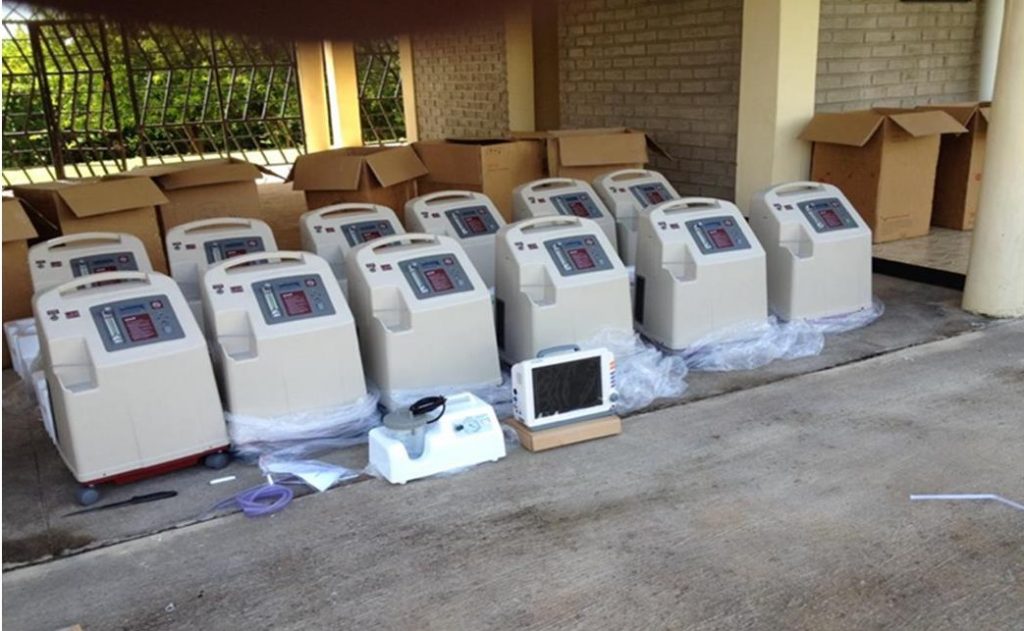
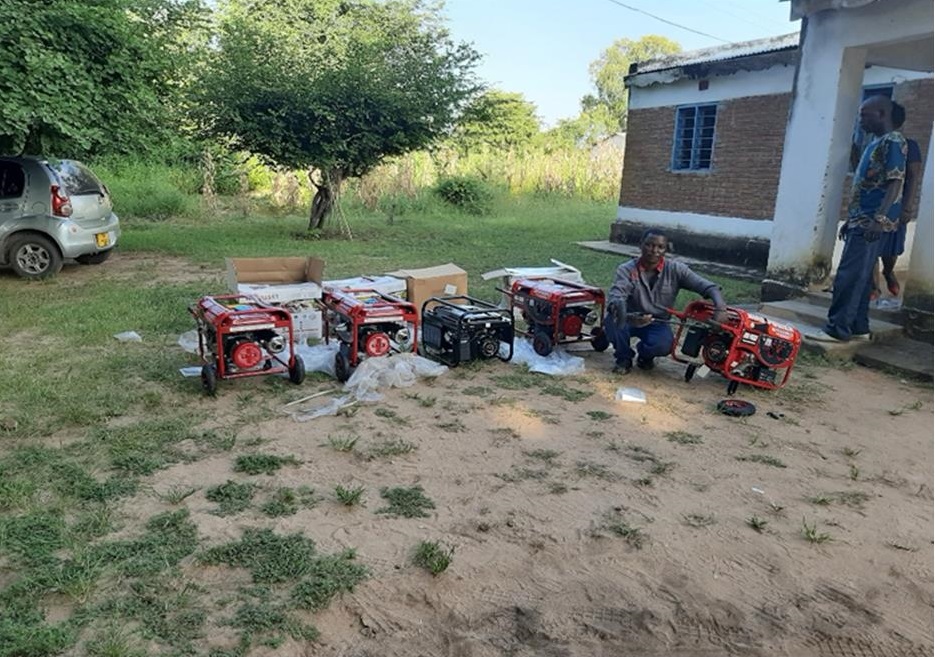
Refurbishing and Customizing an Ambulance
The Diocese if in the process of refurbishing and customizing an ambulance to the level of an Intensive Care Unit for ferrying critical patients to Mzuzu Central Hospital from areas under the Diocese of Karonga.
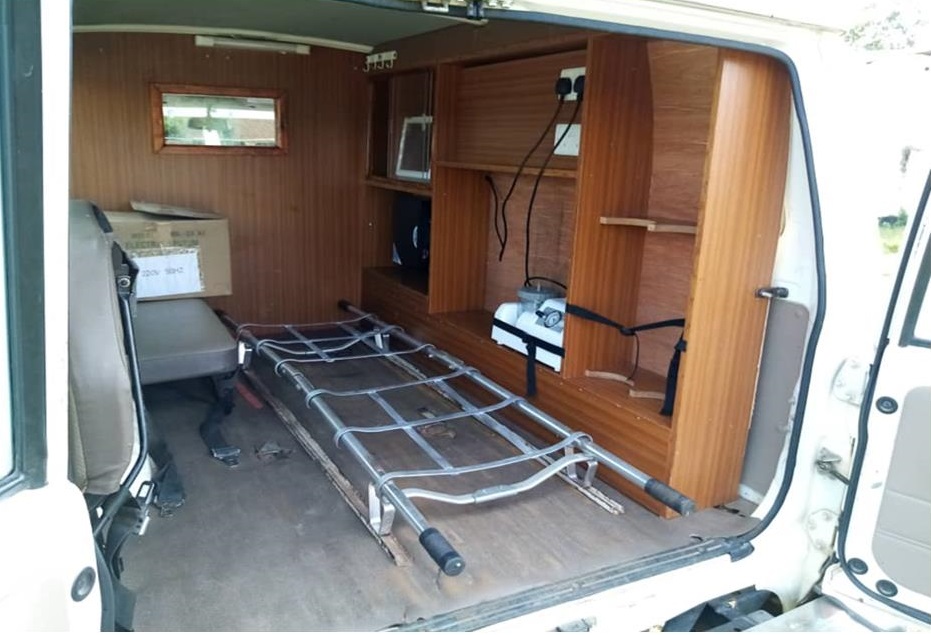
Setting up an Ambulance Rapid Response Team
A specialised team comprised of 10 medical, nursing personnel and drivers to be stationed at the headquarters to provide emergency response when the pandemic becomes acute in the Diocese. Members are drawn from the 5 health facilities of the Diocese. These will be supported by the government district hospitals.
Conducting training to all staff in all the 5 heath facilities
Workers in Diocesan health facilities have been trained about COVID-19, preventive measures, contact tracing and operation of treatment equipment.
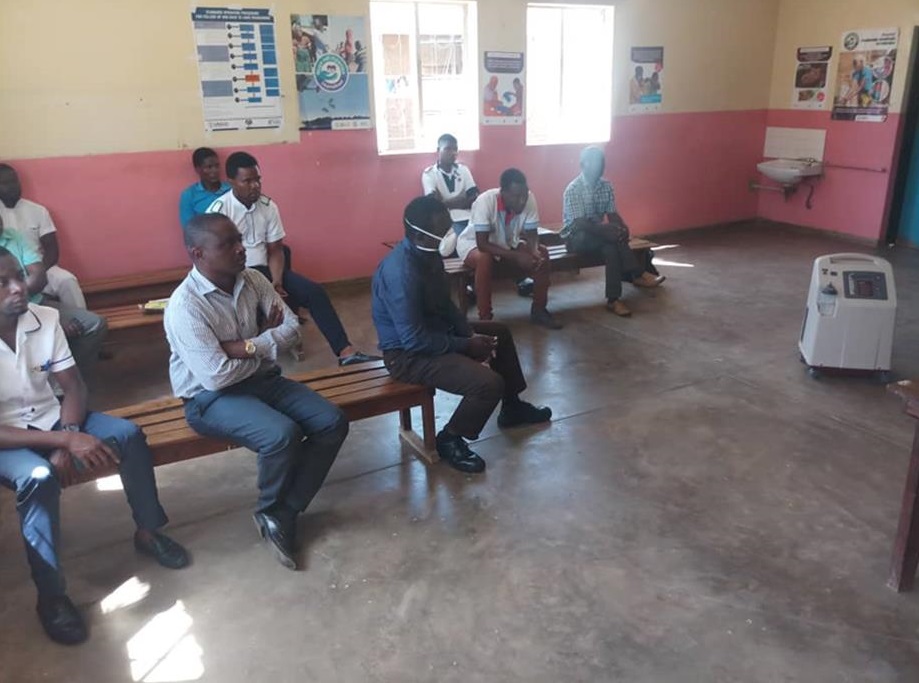
Procure and deliver PPE to all workers of the Diocese including in all the 5 health facilities
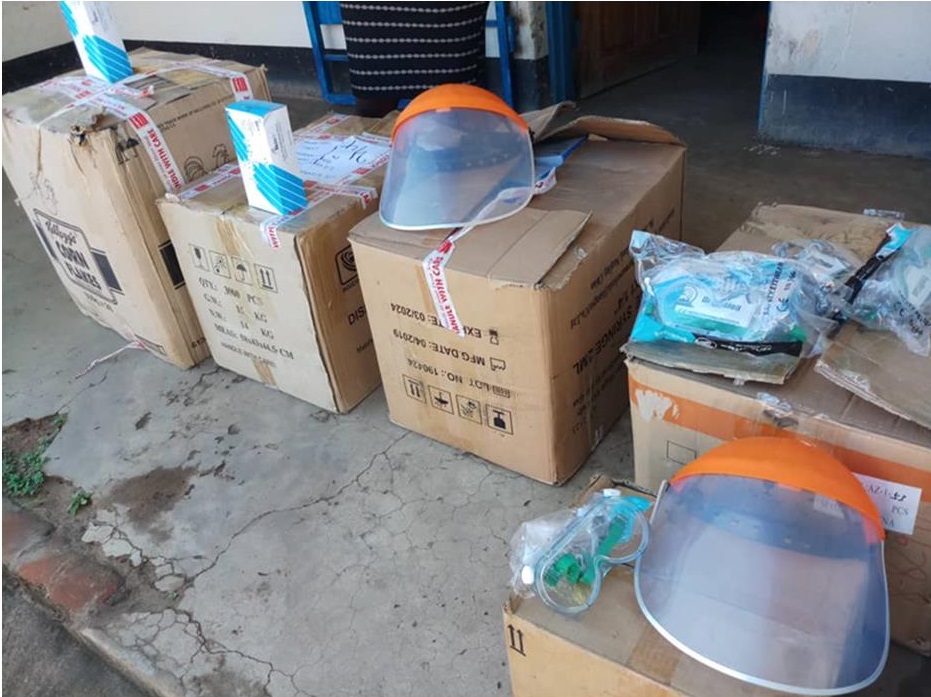
Carrying awareness to staff, priest and local Church leaders
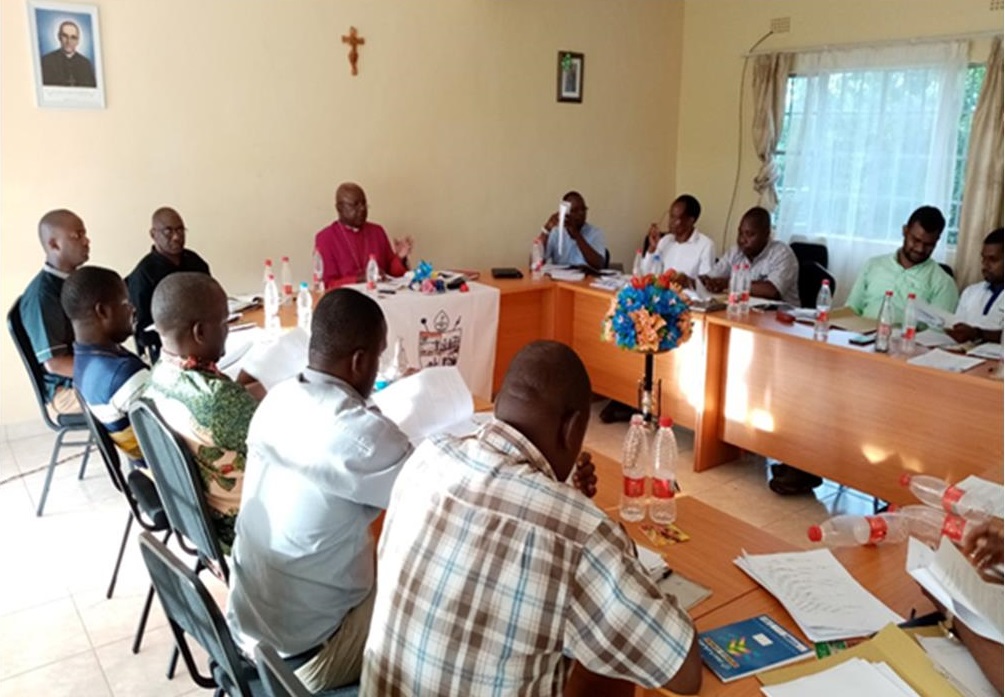
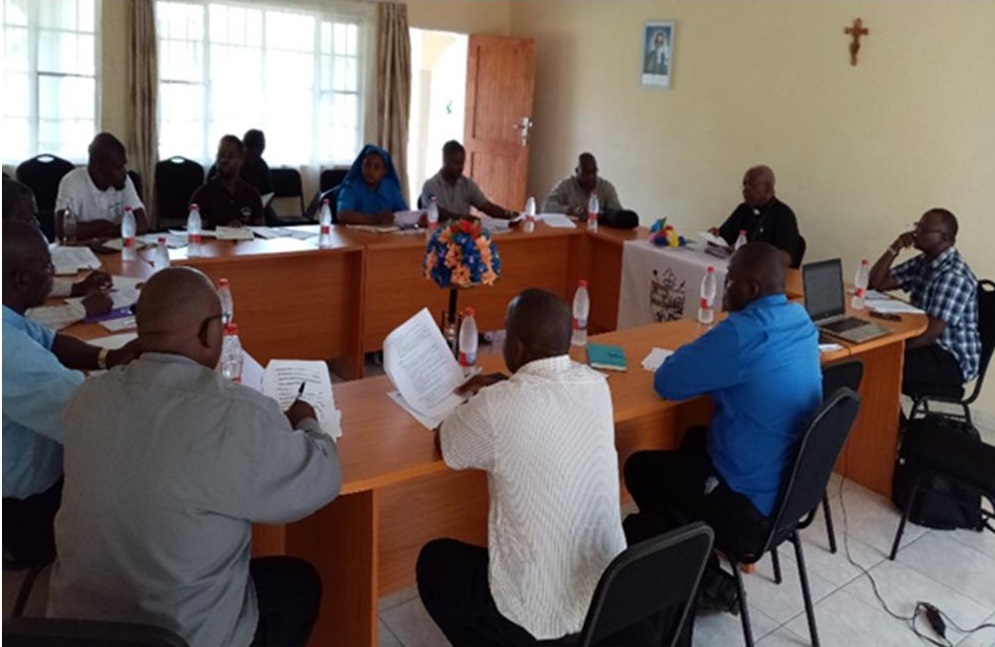
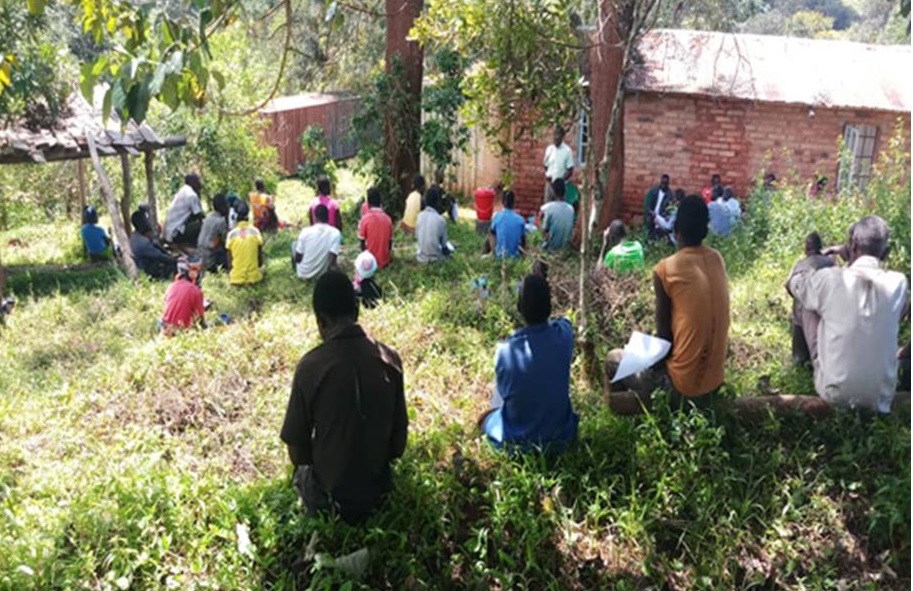
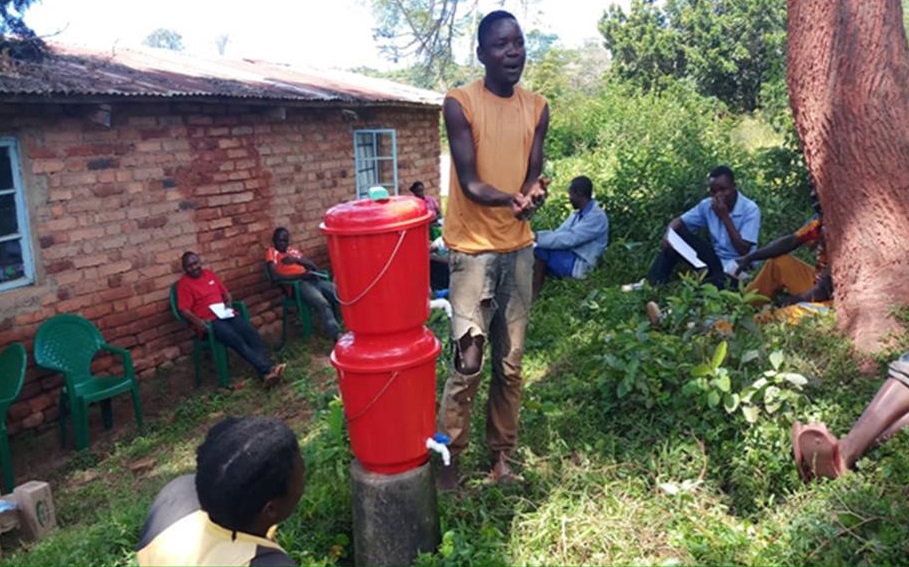
Training of Pastoral Council members from 12 parishes in the Diocese
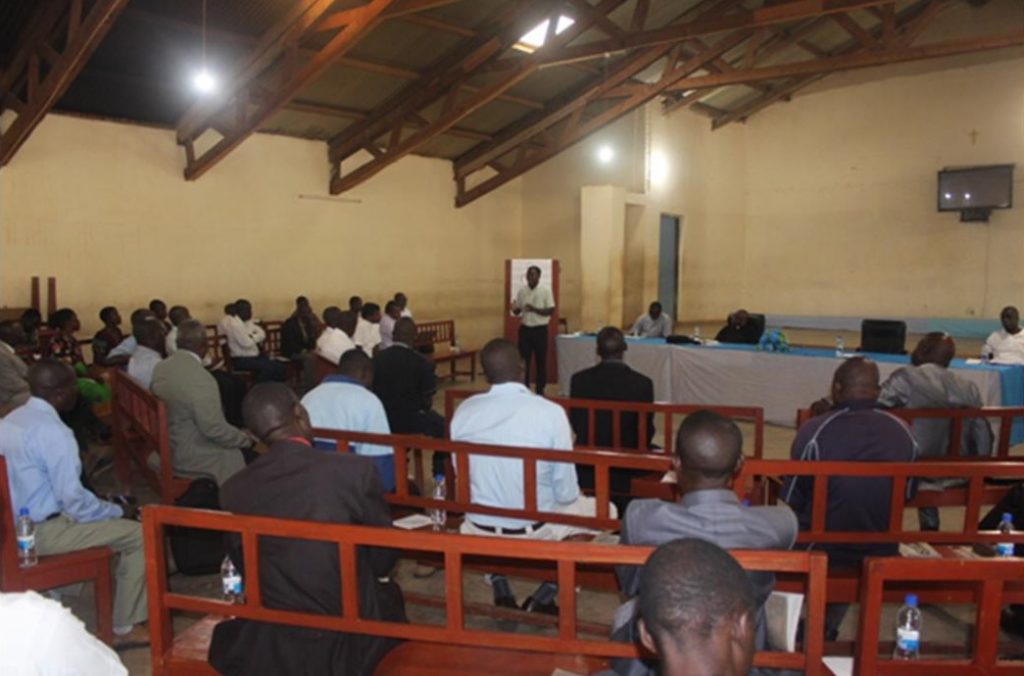
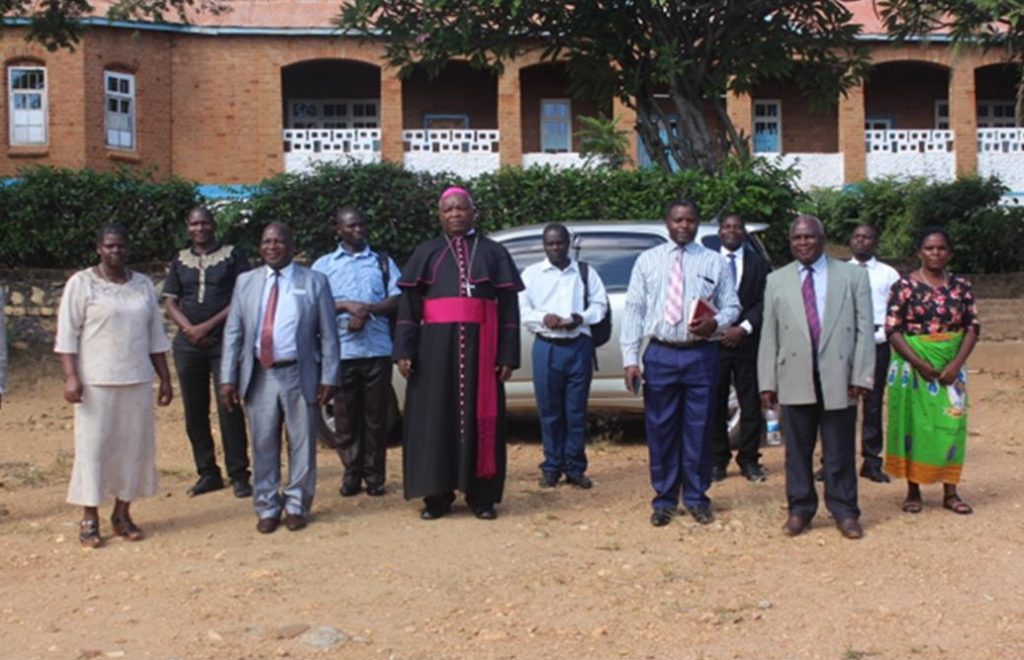
Promoting prevention measures in all Diocese establishments including offices and prayer centres and promoting the same in families
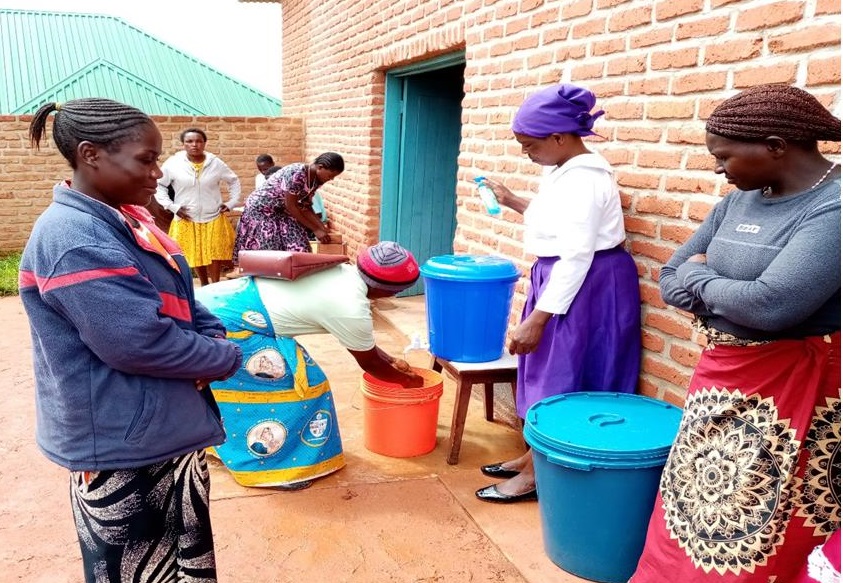
Figure 3: Faithful wash hands before & after Sunday Liturgy at Chibanji Prayer Centre before suspension of public liturgical celebrations
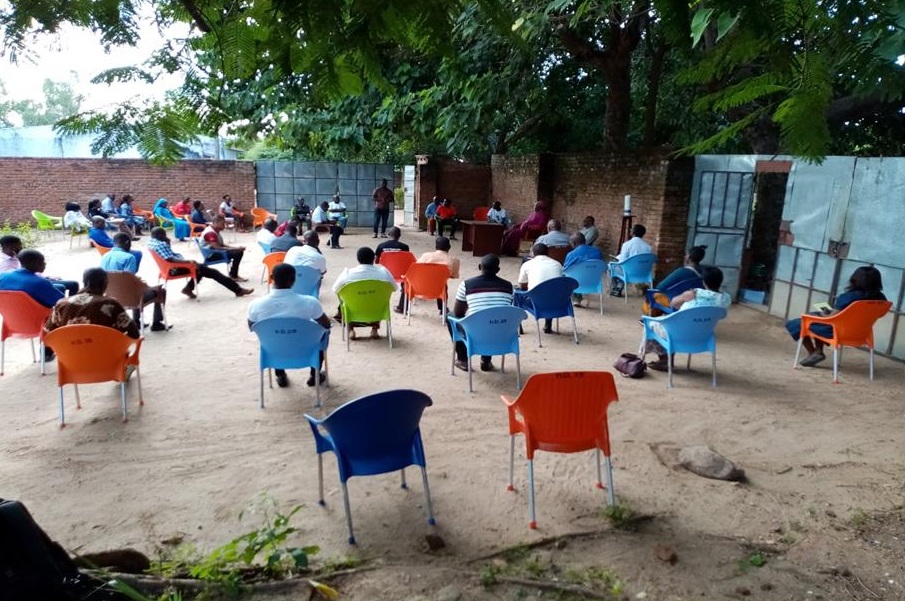
Broadcasting radio programme and messages
The Diocesan Radio, Tuntufye FM, broadcasts countless programmes and messages on COVID-19 reaching out to over 1 million people in the north of Malawi
Developing and disseminating posters on COVID-19
A total of 145300 posters have been produced and distributed in the Diocese of Karonga
Financial Support
- Archdiocese of Munich
- The Mathile Foundation
- Manus Unidas
- Catholic Cross
- Major James Nyirenda
- Archdiocese of Padarborn
Activities the Diocese wants to do next
- Raising mass awareness regarding COVID-19 especially in rural communities.
- Support communities and various public places with personal hygiene facilities; e.g. masks, gloves and hand washing facilities.
- Economically support vulnerable families affected by the COVID-19.
- Continue supporting health facilities in the treatment of COVID-19 cases including supplying PPE.
Contacts
For more information about these and for those who would want to help please contact the ACB leadership as follows:
Mwawi Shaba – Chairperson Email: mshaba@karongadiocese.org
2019/2020 Floods and Strong Winds: A Report From St. Joseph The Worker Cathedral – Karonga, Malawi
By Mons Denis S. Chitete – CATHEDRAL ADMINISTRATOR*
From the month of November 2019 to April 2020, Karonga District experienced heavy rains and strong winds, which led to many families being displaced either because of floods or roofs of their houses being blown-off. The children and the elderly are the most affected.
Some of the most affected areas in our parish are: Baka, Vilaule, Mwamasapa, Mpata, Silu and Mbwiri.
The floods washed away household assets such as; food reserves, livestock, beds, beddings and kitchen utensils. The strong winds blew off the roofs from many houses and in some cases literally destroyed the houses.
The victims of the floods and strong winds were re-located to a few camps which the government and some non-governmental organisations created in the upper lands.
Even though some of the victims have gone back to their homes, there are many who still live in the camps. These camps are generally congested. This means that the occupants are prone to communicable diseases due to poor sanitation. Some camps do not have enough toilets, posing serious health challenges to the occupants. The people sleep without mosquito nets and this is exposes them to malaria, which is the highest cause of deaths especially, among children and elderly in Malawi.
Even before the closure of schools due to the COVID-19 pandemic, the floods affected the education of school-going children because some of them were locked in the camps when it was too dangerous for them to walk to school. On 10th march, one school pupil was swept away by the flood water on his way to school in Kalongolera Village in Karonga District. His dead body was recovered after several days. On the other hand, some schools were being used as temporary camps for the victims of the floods which meant that most school activities had to be suspended.
Just like children in the flooded areas were not able to go to school, the same children and their parents also found it difficult to go to church to pray. So, Church attendance during the same period dropped drastically.
In my opinion the recovery programme to the victims of the floods and strong winds ought to be twofold: material and spiritual.
At the moment, some of the materials that are immediately required to support the affected families include; food items (maize, beans, cooking oil), mosquito nets, chlorine, clothes, tents, beddings, cups and plates, mats and mattresses.
In the long term, many families need help to reconstruct their houses while some families may need to be relocated.
Spiritually, the victims of the floods and strong winds need a lot of prayers and accompaniment. Some have lost faith in the Good God.
Reading from John 14:1we learn that Jesus said, “Do not be afraid; trust in God and trust in me.” John 14:27b “Do not be troubled; do not be afraid.”
Romans 8: 18-21a “Everything that has been made in the world is weak. It is not that the world wanted it to be that way. God allowed it to be that way. Yet there is hope. 21 Everything that has been made in the world will be set free from the power that can destroy.”
Romans 8:31”What shall we say after this? If God is with us, who shall be against us?”
We hope and pray that the religious leaders, government and other well-wishers will find ways of materially and spiritually assisting the victims of the floods and strong winds to recover and return to their normal life as soon as possible.
Here-below are some of the photos of the situation in Karonga.
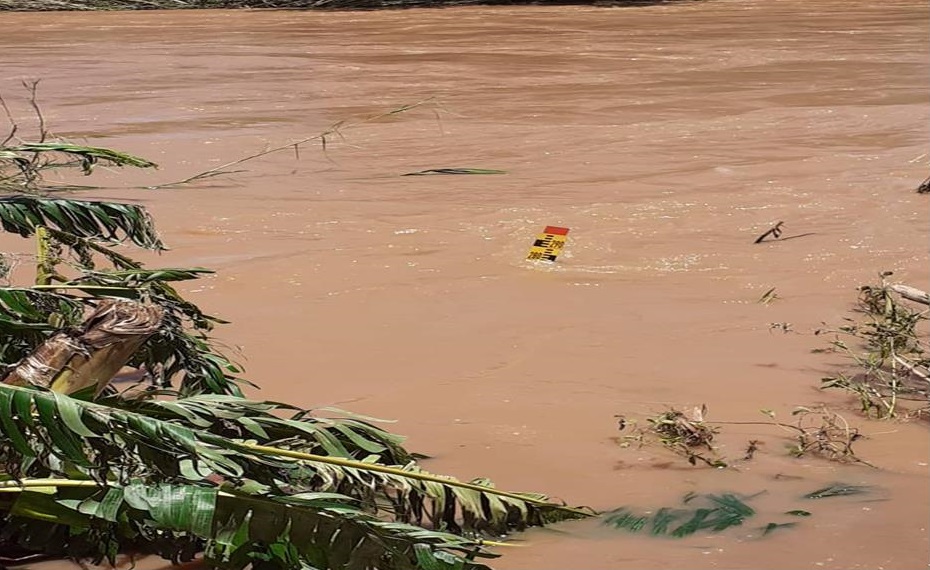
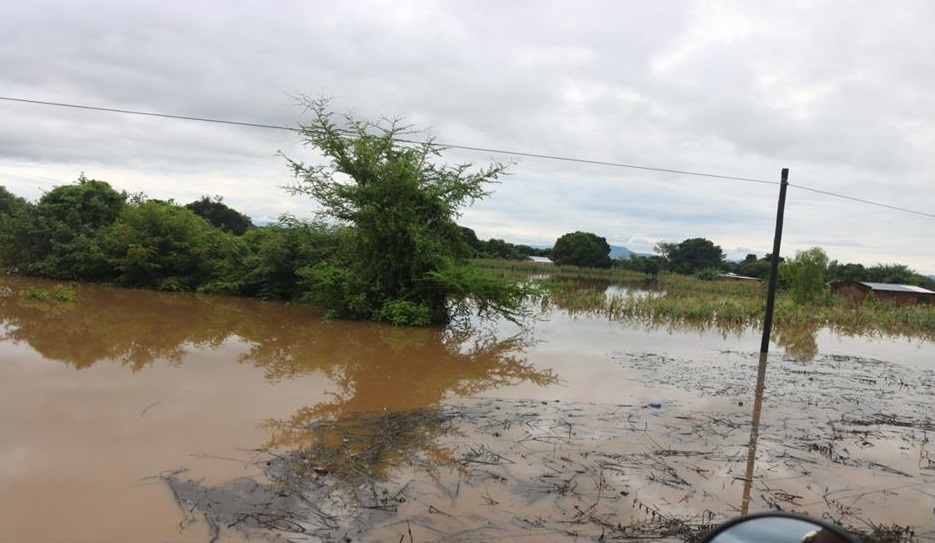
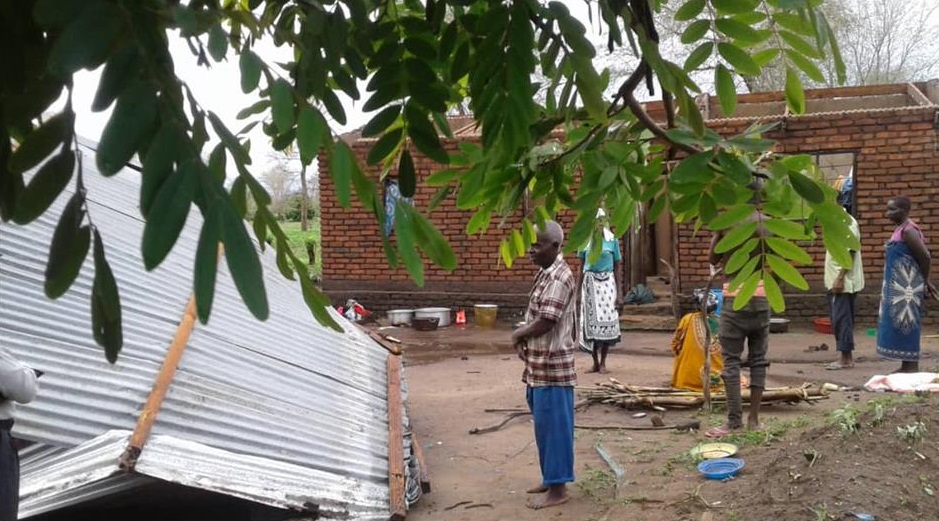
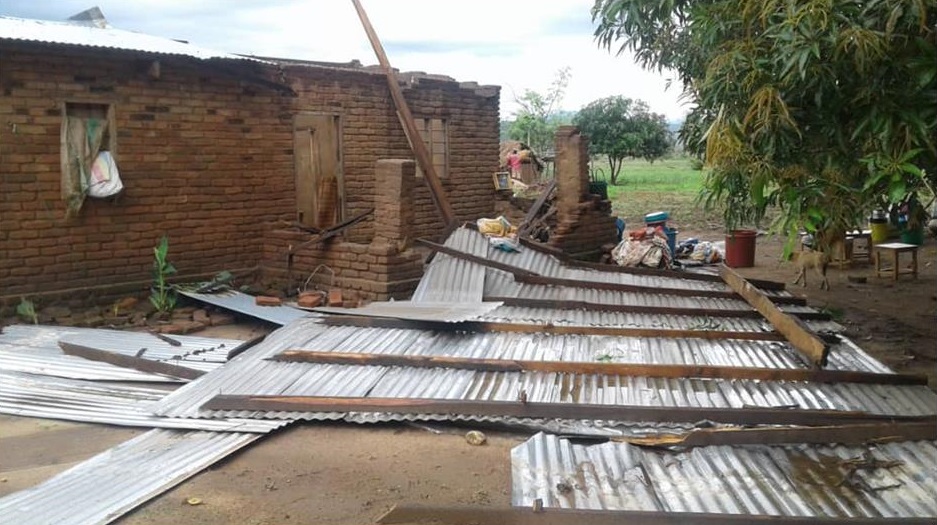
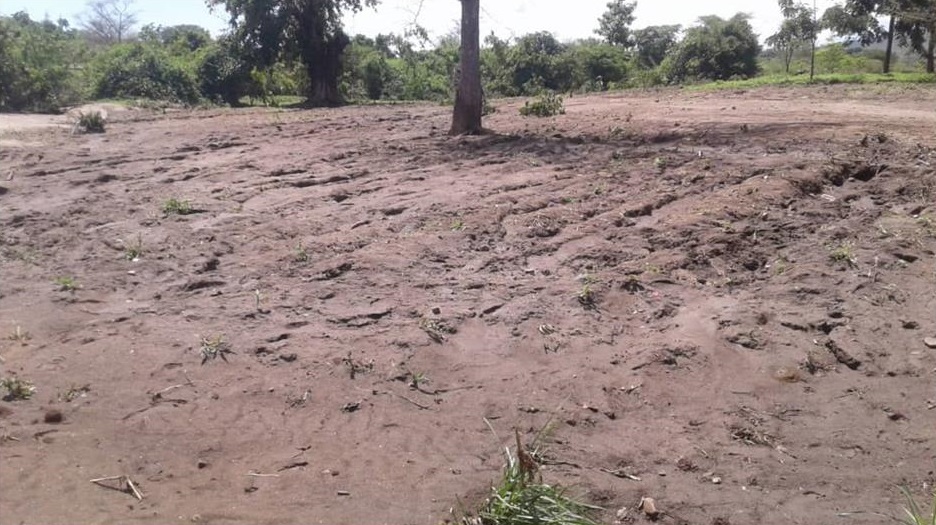
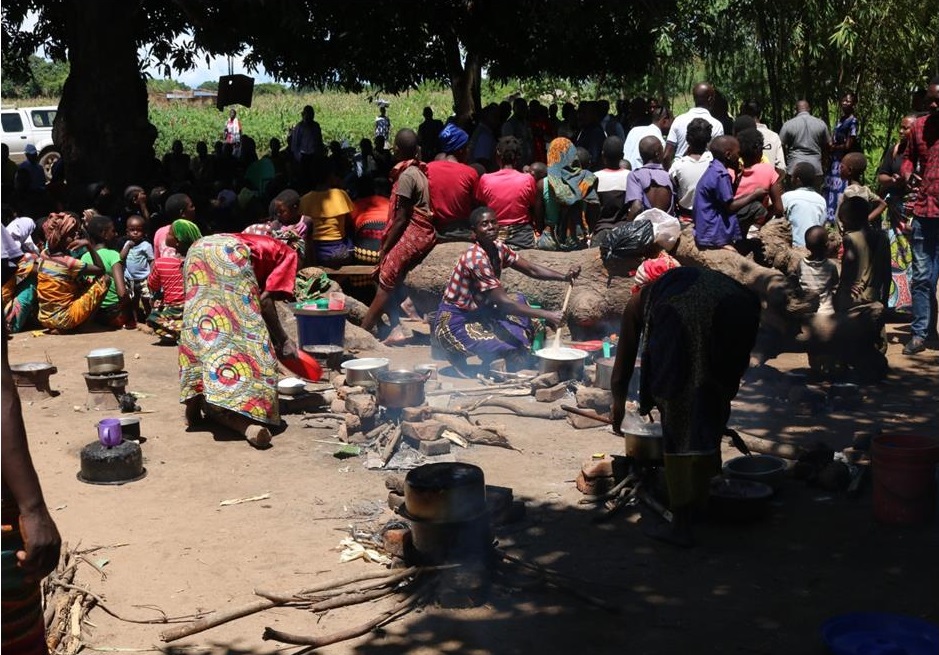
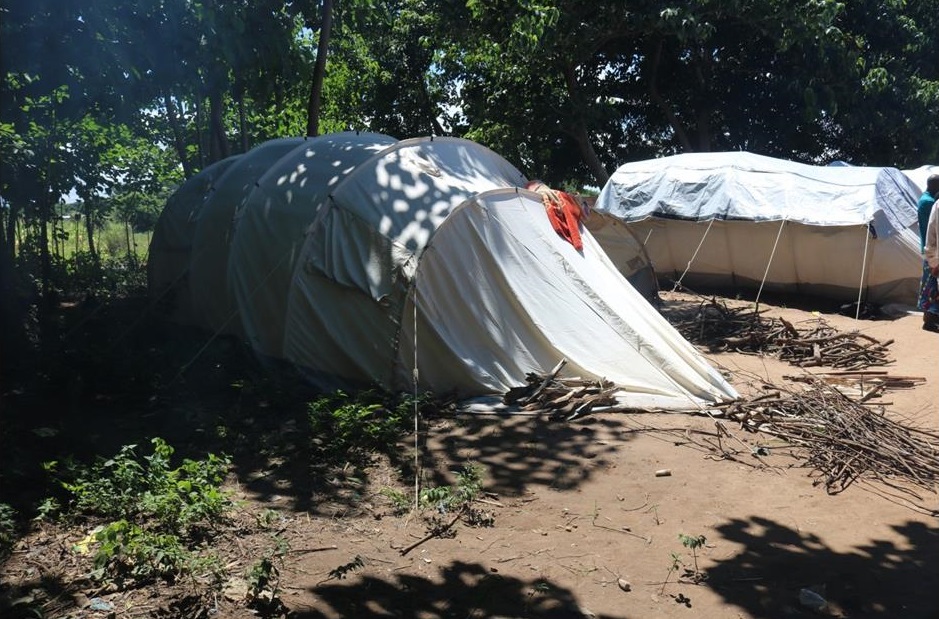
*The writer is the Vicar General of the Diocese of Karonga and Administrator of St Joseph the Worker Cathedral Parish
Elderly Woman Celebrates New High Yielding Bean Variety (NUA 45)
By Jimmy Mgamba
Grace Mkandawire of Hanania Village aged 64 is an old woman living with her husband Steven Usipa aged 69. God blessed them with 4 children and 5 grand children (M3, F6) and their 3 daughters were married but returned home, to live with them, when their marriages failed. Both hail from the same village, Hanania, Traditional Authority Kachulu.
Grace Kandawire and Steven Usipa are participants in (Access plus) A+ Project which started in October, 2019 and fall under a criterion of elderly people. The couple is among elderly families living in Hanania Village. Grace and her husband depend on farming for their own and livelihood of their daughters and five grandchildren.
In spite of their old age, Grace and Steven attended almost all training sessions organized by the project. In that way, the project assisted them with 2 kilograms of new variety of beans, known as NUA 45, which they planted in December, 2019. Grace intercropped the beans with maize and planted on an acre of land. The family grows other crops such as Cassava, Sweet potatoes.
Grace Mkandawire thanks the project for coming with such initiative of supporting farmers with certified seeds which have approved already high yield. This was the first time for the family to grow high yield variety of beans which matures in 60 days. From the 2 kilograms of NUA beans she planted, Grace expects to get between 80 and 120 kilogrammes of beans. The family plans to plant more beans during winter cropping for food and commercial purposes.
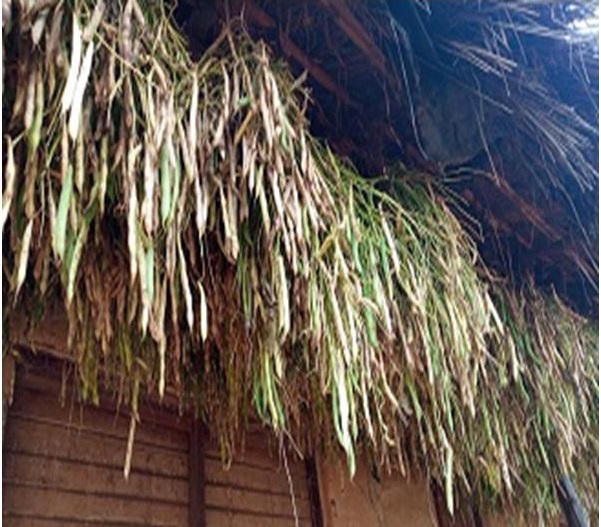
“Relish will not be a challenge any more this year since we will have lots of beans,” said grace.
A+ Project, under the Development Desk of the Diocese of Karonga, gives hope to more families, like that of Grace Mkandawire, who have seen the goodness of planting certified seed and follow instructions from field officers.
The project procured NUA 45 bean seed to support such old vulnerable families who are also keeping grand children and orphans in their homes. Grace actively participates in all the interventions being implemented in the area by the Diocese of Karonga, namely; irrigation, livestock pass on, village saving and loans (VSL) and Conservation Agriculture (CA) just to mention a few.
Grace Mkandawire hails A+ Project for applying this approach, known as Strength Based Approach which really will change the mindset of their fellow farmers in the community who fix their mind on handouts unlike putting their energy and efforts on crop production.
Steven Usipa, the husband to Grace, also belongs to a group called Tiwonge Village Savings and Loan group which has 26 members (5 males and 26 females). The grouping was established by the A+ Project in March, 2019.
The Karonga Diocese – development desk with funding from Caritas Australia is implementing a 3 year A+ project within Traditional Authority Kachulu and Mwalweni in Nchenachena Extension Area, Rumphi District.

